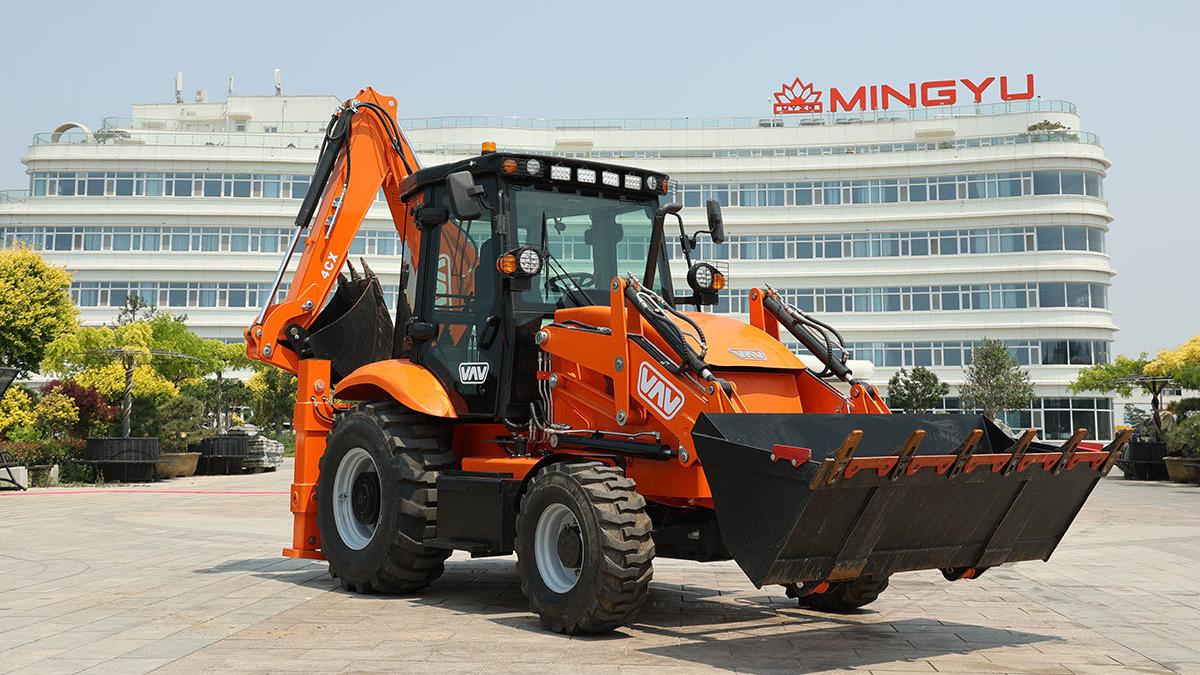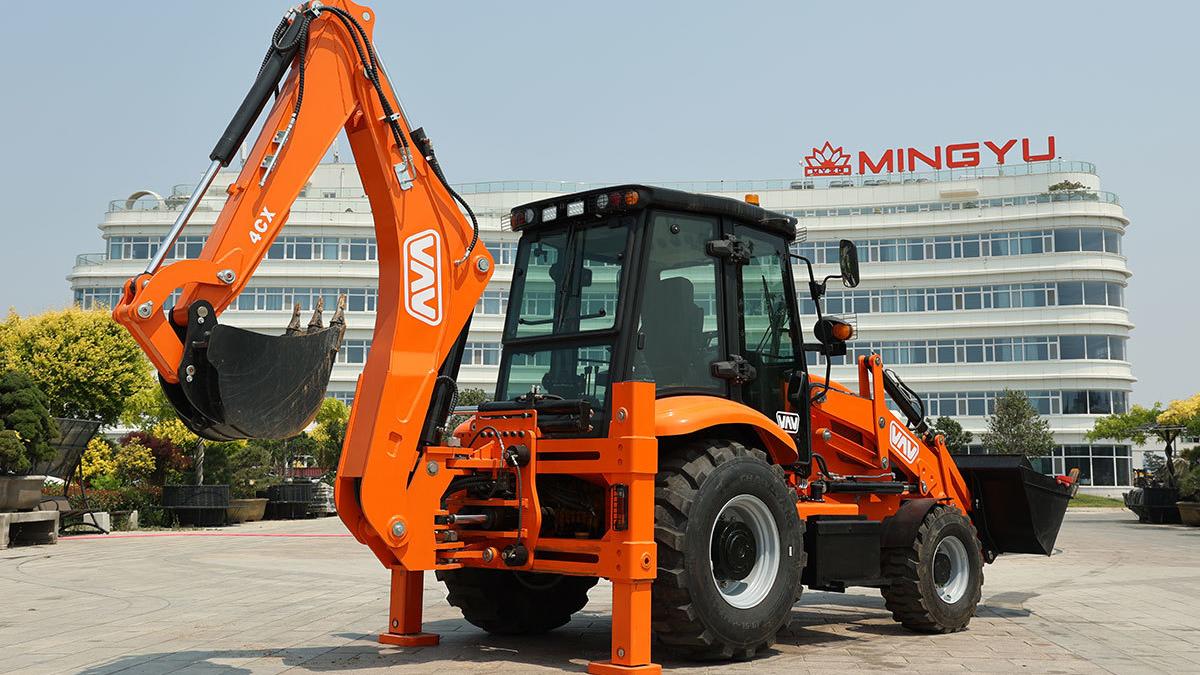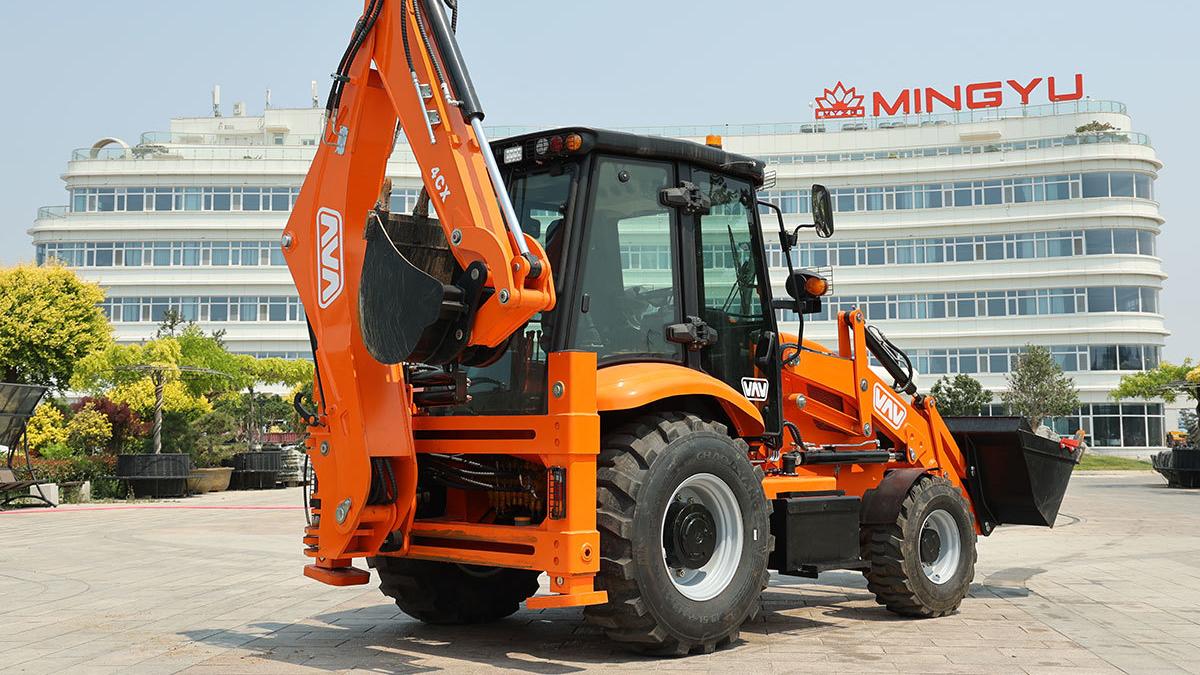Should I Buy or Rent a Backhoe Loader?
Introduction
Backhoe loaders are some of the most versatile pieces of heavy machinery in the construction and agricultural sectors. Equipped with a front loader and a rear excavator, they are capable of digging, trenching, lifting, material handling, and even demolition work. Because of their wide range of applications, they are a common sight on job sites big and small.
If you find yourself in need of a backhoe loader, one of the first questions you’ll face is whether to buy or rent the machine. This is a significant financial decision and one that depends on several factors—usage frequency, budget, duration of the project, and long-term business goals.
This article aims to help equipment owners, contractors, and business managers determine the most practical and cost-effective option. We’ll explore the advantages and disadvantages of both renting and purchasing a backhoe loader and provide some real-world cost comparisons to guide your decision.
Understanding Your Needs
Before jumping into numbers, it’s crucial to understand your actual requirements. The “right” decision depends heavily on your project and usage patterns.
Ask yourself the following questions:
How often will you use the backhoe loader?
If you plan to use it regularly throughout the year, ownership might make more sense. If it’s for a one-time project or occasional seasonal work, renting could be more practical.
What type of work are you doing?
Lighter tasks like landscaping and snow removal may require the machine for shorter periods. Heavier construction or excavation projects may involve continuous use.
How long is your project expected to last?
For long-term projects (several months or years), buying may offer better long-term value. For short-term jobs (a few days to a few weeks), renting is more cost-efficient.
Do you need flexibility in machine models or attachments?
Renting allows you to access different models for different tasks.
The clearer your usage scenario is, the easier it becomes to make the right decision.
Pros of Buying a Backhoe Loader
Buying a backhoe loader is a long-term investment, and for the right user, it can pay off significantly. Here are the key advantages:
✅ Cost Savings Over Time
If you use the backhoe frequently (e.g., several times per week or on multiple projects throughout the year), the cumulative rental fees could exceed the purchase price over time.
✅ Always Available
You’ll never need to worry about rental availability, scheduling, or waiting periods. The machine is ready whenever you need it.
✅ Asset Ownership
A purchased backhoe becomes a business asset. You can resell it later and recoup some of your investment. Over years of use, the total cost of ownership may be less than repeated rentals.
✅ Tax Benefits
Business owners can often take advantage of tax write-offs such as depreciation, interest on financing, and equipment deductions.
✅ Customization
When you own the machine, you can equip it with specific attachments, branding, or modifications to suit your work.
Cons of Buying a Backhoe Loader
Despite the benefits, buying isn’t ideal for everyone. There are some downsides to consider:
❌ High Upfront Cost
A new backhoe loader can cost between $60,000 and $120,000, depending on the model and features. Even used models require a significant investment.
❌ Ongoing Maintenance Costs
As the owner, you’re responsible for all repairs, preventive maintenance, and servicing. These can add up quickly, especially if the machine is heavily used.
❌ Depreciation
Like most heavy equipment, backhoes lose value over time. While you can recover some cost through resale, depreciation is inevitable.
❌ Storage and Transport
You’ll need space to store the machine safely and a way to transport it between job sites.
❌ Underutilization
If the machine sits unused for long periods, it’s not generating revenue and becomes a sunk cost.
Pros of Renting a Backhoe Loader
Renting offers flexibility, lower upfront costs, and simplicity. It's often the preferred option for short-term or infrequent use.
✅ Low Initial Expense
Renting allows you to get the equipment you need without the financial burden of a purchase. You only pay for what you use.
✅ Access to Latest Equipment
Rental companies usually update their fleets with the latest models and technology. You benefit from modern features without extra investment.
✅ No Maintenance or Repair Costs
Most rental agreements include maintenance and service. If something breaks, the rental company handles the repair or replacement.
✅ Flexibility
You can rent different models for different tasks or try out equipment before committing to a purchase.
✅ No Storage or Long-Term Commitment
Once the job is done, you return the machine—no need for off-season storage or upkeep.
Cons of Renting a Backhoe Loader
While renting is convenient, there are some limitations:
❌ Higher Long-Term Costs
If you rent frequently, the cost can quickly add up. For example, monthly rental rates over several months can surpass a used machine’s value.
❌ Limited Availability
During peak construction seasons, demand increases and rental units may not be available when you need them most.
❌ Usage Restrictions
Rental contracts may include limitations on operating hours, terrain, or transport. You may also be liable for damage.
❌ No Long-Term Value
Unlike buying, renting does not build equity or give you a long-term asset.
❌ Lack of Familiarity
Switching between rental models can affect productivity as operators adjust to different controls and layouts.
Cost Comparison: Buying vs. Renting
Let’s compare estimated costs for both options:
Buying
New backhoe loader: $80,000–$100,000
Used backhoe loader: $30,000–$60,000
Annual maintenance: $2,000–$5,000
Depreciation: 10–20% annually
Ownership period: 5–10 years
Renting
Daily rental: $250–$400
Weekly rental: $900–$1,500
Monthly rental: $2,500–$4,000
Long-term rental contracts may reduce rates
Example Scenario:
If you need a backhoe for 6 months, at $3,000/month, the rental cost would total $18,000. For that price, you could make a down payment on a used machine and own it outright in a few years.
Operational Considerations
Besides financials, several operational factors can influence your decision:
Maintenance: Do you have in-house mechanics or will you need third-party service?
Operators: Are your operators trained for multiple models or prefer consistent equipment?
Attachments: Renting may not offer specialty attachments, while ownership allows customization.
Downtime: Who handles replacement or repairs during breakdowns?
Transport: Do you have the capability to move the equipment from site to site?
hese details can impact both cost and convenience significantly.
Making the Decision: Key Questions to Ask
To determine whether buying or renting is right for you, ask:
How many hours per year will the machine be used?
Can your cash flow or budget handle a large upfront cost?
Do you have space and logistics for storing and transporting the machine?
Are you comfortable managing maintenance and repairs?
Do your projects require different models or attachments?
If you answer “yes” to most of the above, buying may be better. If not, renting could be the smart choice.
Conclusion and Recommendation
Choosing whether to buy or rent a backhoe loader depends on your specific needs, budget, and operational setup. There’s no one-size-fits-all answer, but here’s a general guideline:
Buy if:
You use the machine regularly, have long-term projects, want full control, and can manage maintenance and storage.
Rent if:
Your use is limited or seasonal, you need the latest models temporarily, or your budget doesn’t allow a major investment.
Ultimately, the right decision balances cost-efficiency, project needs, and flexibility. By understanding your priorities and carefully analyzing your usage, you can make a confident, informed choice.
Post time:Jul.01.2025



